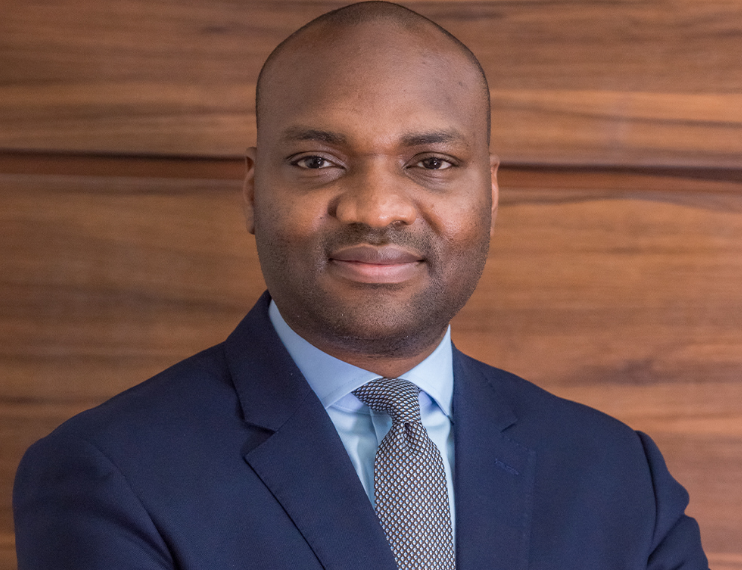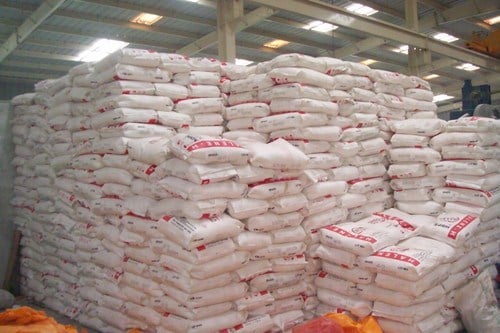NSIA to exit fertiliser scheme after growing blending plants
The Nigeria Sovereign Investment Authority (NSIA) has announced it will exit the Presidential Fertiliser Initiative (PFI) this year, following an eight-year intervention that grew the number of fertiliser blending plants from just four in 2017 to 90 this year.
The Managing Director and Chief Executive Officer of the Authority, Aminu Umar-Sadiq disclosed this at the NSIA’s 2024 Earnings Presentation and media engagement on Wednesday.
The PFI was established to provide affordable, high-quality fertiliser to Nigerian farmers and revive the local blending industry by sourcing over 60 per cent of raw materials locally and producing at domestic blending plants.
This new development shows a shift in the federal government’s fertiliser policy, with the Ministry of Agriculture and Food Security expected to take full ownership of the scheme ahead of the 2025 farming season.
“We have successfully resuscitated the industry. The original idea was not to be in fertiliser forever,” Mr Umar-Sadiq said. “We stepped in to fix a market failure, and now that has been done, we are exiting. The government will take over fully.”

Launched in 2017 under former President Muhammadu Buhari, the fertiliser initiative was initially conceived as a stop-gap measure to reduce import dependence and resuscitate idle plants nationwide.
At the time, most farmers relied on expensive imported products, often supplied erratically.
The NSIA was tasked with executing the programme via a Special Purpose Vehicle, NAIC-NPK Limited, which oversaw operations from sourcing raw materials to distributing fertilisers.
The NSIA official said at inception, just four blending plants were operational, but by the end of 2023, participation had expanded from 11 in 2017 to more than 81 facilities, showing a significant resurgence of the sector.
“We were not in it to run fertiliser forever,” Mr Umar-Sadiq reiterated. “We’re not a fertiliser company. We’re an investment institution. But we stepped in, structured the entire ecosystem, fixed the problem, and now the problem is fixed.”
According to the NSIA, the initiative has produced over 30 million bags of NPK fertiliser and created thousands of jobs while reducing the retail cost for farmers.
NSIA’s role included sourcing raw materials, coordinating finance, and streamlining production and distribution. Through strategic partnerships and import substitution, the cost of fertiliser was reduced, and availability improved nationwide.
“As of today, we have 90 functioning blending plants in Nigeria. At the beginning of this process, there were only four,” Mr Umar-Sadiq said. “Some of those blending plants were built by the private sector, which is what we want—crowding in private capital.”
He also confirmed that many of these plants are now fully commercial, operating outside government subsidies.
Responding to questions about the scheme’s future under the agriculture ministry, Mr Umar-Sadiq said the NSIA is supporting the transition with robust data systems, targeted training, and institutional safeguards to ensure continuity and guard against any erosion of standards.
“We’re making sure that everything is put in place for the ministry to run with it,” he said. “The transition is being handled very responsibly.”
Asked about what lies ahead for the NSIA, Mr Umar-Sadiq pointed to new and ongoing projects in infrastructure, healthcare, and renewable energy.
“Our role is to invest in commercially viable, high-impact sectors,” he said, citing health projects like cancer centres, road investments through public-private partnerships, and renewable energy initiatives.
He also disclosed that the NSIA is preparing to scale up its role in the climate finance space. “We’re doing more in climate. We are developing products around carbon markets. That is going to be huge,” he said.
On the economy, Mr Umar-Sadiq highlighted the risks Nigeria faces from relying heavily on oil revenue. “Even when oil was at $140, Nigeria didn’t benefit. It’s not about high prices alone—it’s about how much of that revenue you retain.”
He said the NSIA is structured to take a long-term view and insulate future generations from economic shocks. “We are not like a ministry that thinks in election cycles. We think 20, 30 years ahead.”
Mr Umar-Sadiq disclosed that the NSIA has received a cumulative $1.82 billion in net contributions from the government since its inception. As of December 2024, the Authority’s net asset value was $2.84 billion, or approximately N4.35 trillion.
For the 2024 financial year, the NSIA reported operating income of N1.85 trillion, with profit after tax and total comprehensive income at N1.88 trillion. The fund delivered a return on average assets of 12.2 per cent and a return on average equity of 12.4 per cent.
He emphasised that the NSIA remains committed to attracting capital and supporting long-term economic growth in priority sectors such as agriculture, housing, energy and healthcare.
Responding to questions about sustainability and long-term project maintenance, NSIA’s Chief Financial Officer, Victor Sesere, said the organisation takes a forward-looking approach to infrastructure planning. He said that no medical equipment is procured without a 10-year operations and maintenance contract, a measure aimed at ensuring consistent performance and uptime across healthcare investments.
Mr Sesere also highlighted the institution’s financial performance in 2024, saying all revenue streams recorded more than single-digit growth, with some posting triple-digit increases. The surge in total assets, which nearly doubled to N4.4 trillion, was driven by strong returns from investment securities and strategic allocations in hedge funds, private equity, fixed deposits, and collateralised instruments. A $175 million capital injection from the federal government and gains from foreign exchange also contributed to the increase.
He added that the NSIA had become more efficient, with its cost-to-income ratio dropping by 100 basis points to 3.7 per cent.
“We only spent 3.7% of our income to achieve these results. That’s very efficient,” he said. In dollar terms, he said the Authority recorded a core total comprehensive income of nearly $400 million, with total assets valued at $2.88 billion and net assets standing at $2.8 billion. Since surpassing the N1 trillion asset mark in 2022, the NSIA has continued on a strong upward trajectory.
Also speaking, the NSIA’s Chief Operating Officer and Executive Director, Ijeoma Taylaur, acknowledged the challenges facing infrastructure investment. She said inflation, currency volatility, and the withdrawal of major global funding programmes had made infrastructure delivery more difficult.
“Inflation is terrible for infrastructure. When FX devalues, you can’t easily pass that on to customers, so we absorb it,” she said. “Also, there’s been a shift away from climate-focused financing, which has affected some of our green projects.”
Still, Ms Taylaur said that the NSIA continues to attract domestic and international capital to bridge funding gaps and unlock large-scale investments across critical sectors of the Nigerian economy.













